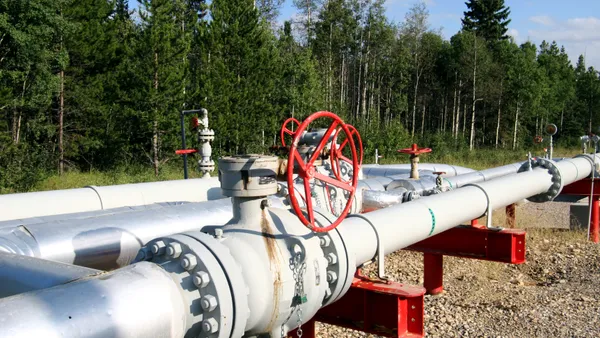Dive Brief:
- The Global Reporting Initiative proposed two standards last week for how companies should report the effects of climate change and energy use on operations and the broader public.
- The climate change standard incorporates principles of a “just transition” and includes disclosures for climate change transition plans and annual progress on emissions reduction targets. The energy standard would create disclosures for energy management, consumption and generation as part of its framework.
- The organization timed the standards release with the United Nations’ COP28 climate change forum beginning Nov. 30 in the United Arab Emirates. GRI is seeking public input on both documents until Feb. 29, 2024.
Dive Insight:
The standards, created by the independent Global Sustainability Standards Board, or GSSB, all take a double materiality approach, where companies disclose information material to investors and that could affect a broader set of stakeholders.
GRI said the two standards will be key to how global organizations are held accountable for their climate change roles. GSSB Chair Carol Adams said the organization timed the releases with the COP28 conference to give decision-makers access to this information before setting new goals or signing new commitments.
“The scientific evidence and international consensus is unequivocal: climate change threatens humanity’s well-being and the planet's health,” Adams said in the release. “That is why there are growing demands for organizations to provide in-depth information about how they are reducing [greenhouse gas] emissions, taking concrete steps to mitigate and adapt to climate change — and how their actions impact on people and the environment.”
The climate change standards will provide guidelines for companies to disclose how they are adapting to climate-related risks and how their operations impact employees, communities, “vulnerable groups” and biodiversity. They would also create disclosure standards for carbon credits and greenhouse gas removals within the supply chain.
The energy standards will give companies a framework to disclose energy policies and commitments, how they use and generate power within the organizations, as well as how power is used both upstream and downstream in the supply chain. The proposed standard would also require companies to report whether energy reductions are happening within their organization or within their larger supply chain.
The standards follow the release of multiple other reports that show how the global community is well off-track in limiting global warming to 1.5° Celsius. The UN Environment Programme released a report Nov. 20 that said there’s only a 14% probability that global temperatures don’t rise more than an average of 1.5° C over pre-industrial levels, a target set by the 2015 Paris climate accord.
UNEP’s report said current pledges put the world on track for global temperature rises of between 2.5-2.9°C. UN Secretary General Antònio Guterres said keeping global warming under 1.5°C requires a “just, equitable transition” and jettisoning fossil fuels.















